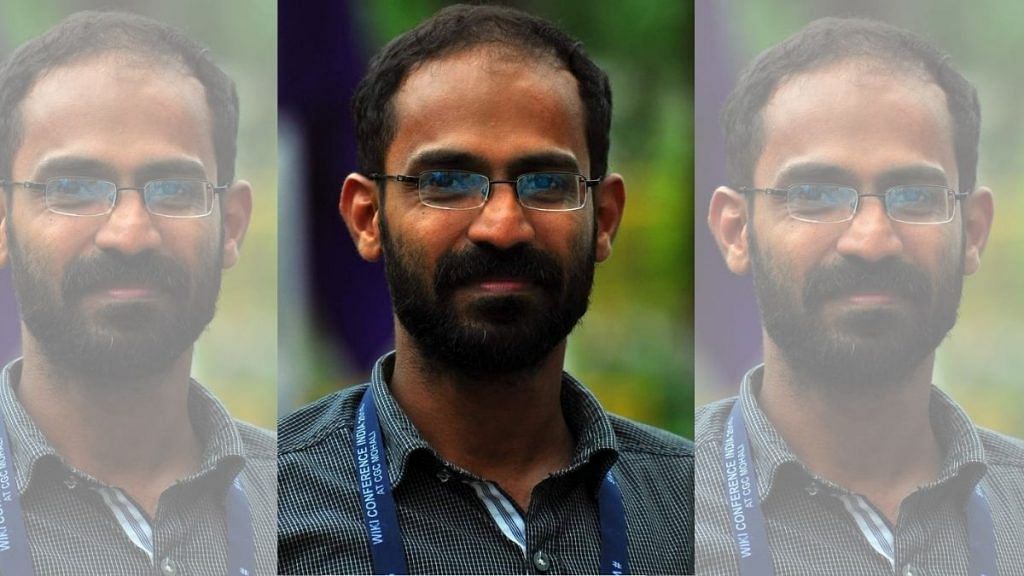‘Siddique Kappan to stay in jail as Lucknow court rejects his bail plea’ was the most ignored and underemphasised news headline. On 15 September, on the occasion of television transmission day, we performed a political play at our university about the current situation of journalists in India, and prominent names such as Zubair, Siddique Kappan, and others were mentioned. What surprised me was that more than half of the audience was unfamiliar with those names, and the event was held in the journalism department.
Yes, these names were unfamiliar to aspiring journalists. And, when you start digging into the reasons for this, no one talks about them, there is no major media coverage on these cases.
Let me tell you what will happen if journalism dies: democracy will not survive; no democracy means no fundamental rights; no independence means a return to the pre-1947 era; however, in this case, we will not need a foreign invasion to enslave our country; we will do that so ourselves.
What saddens me the most is that no one is fighting for the ethics and soul of journalism. Siddique is one of those names who are paying for just doing their jobs. If you’re also unaware of who he is, Kappan is a Kerala journalist who was detained in October 2020 on his way to Hathras, Uttar Pradesh, to cover a story, where a Dalit woman had died after being raped. He is accused of having ties with the Popular Front of India and participating in a plot to incite violence. The Uttar Pradesh Police arrested him under various sections of the Indian Penal Code (IPC), the Unlawful Activities (Prevention) Act, and the Information Technology (IT) Act.
In February 2021, the Enforcement Directorate filed a money laundering case against Kappan and others. The agency claimed that Kappan’s trip to Hathras was paid for by Rouf Sharif, a PFI student wing leader.
The Supreme Court granted him bail in the UAPA case, stating, “every citizen has the right to free expression,” but he was never released because of the money laundering case. Kappan was granted bail after being dragged through lower courts for more than two years but he is still in jail. Why is there such a long wait for justice?
Also read: Lucknow Sessions Court denies bail to Siddique Kappan in Money Laundering case
Abuse of power, incarceration of journalists
The arrest of Alt-news co-founder Mohammad Zubair made a mockery of journalists and fact-checkers. Police arrested him on the basis of a Twitter complaint by an account under the handle @balajikijaiin and the name “Hanuman Bhakt” against Zubair’s 2018 tweet of a still from a 1983 movie Kisi Se Na Kehna. After this, there was a line of complaints against him for calling out the people who were making hate speeches. The Supreme Court granted him interim bail and Justice Chandrachud said “how can we tell a journalist not to write? How can we tell him he should not utter a word? If he does something wrong, he is answerable to the law… We cannot stop a citizen from using his voice.”
These verdicts demonstrate that the Supreme Court recognises that there is an abuse of power and that journalists are imprisoned for no reason.
Apart from Kappan and Zubair, there are many journalists who face similar or worse cases. According to UNICEF, over 1200 journalists were killed worldwide between 2006 and 2020, with 9 out of 10 cases remaining unsolved. This is the on-paper figure; the reality could be much worse.
We need to fight for the lives of journalists. Democracy cannot exist in the absence of the media. People need to be aware of what is happening to them because it is not just about their right to free speech and expression; it is a violation of everyone’s fundamental rights. Journalists and media outlets are supposed to represent our point of view, and anyone who attacks them is indirectly attacking the public.
They represent us, they fight for our rights and our voice, and now it’s time to repay them by raising our voices in their defence. If these incidents do not affect you, they should; otherwise, something is fundamentally wrong in society.
The author is a student at Banasthali Vidyapeeth University, Jaipur. Views are personal.
